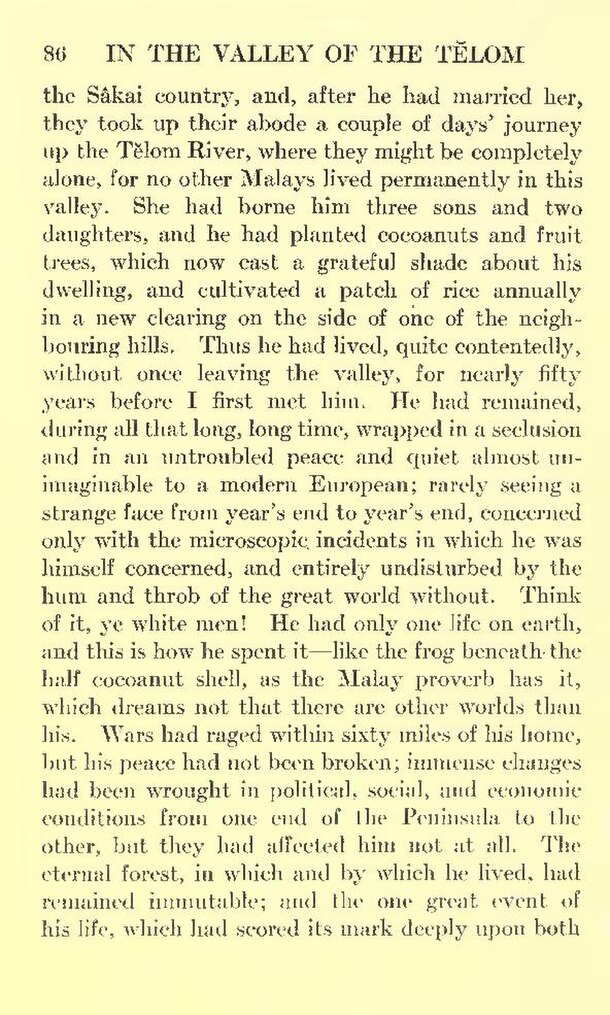the Sâkai country, and, after he had married her, they took up their abode a couple of days' journey up the Tělom River, where they might be completely alone, for no other Malays lived permanently in this valley. She had borne him three sons and two daughters, and he had planted cocoanuts and fruit trees, which now cast a grateful shade about his dwelling, and cultivated a patch of rice annually in a new clearing on the side of one of the neighbouring hills. Thus he had lived, quite contentedly, without once leaving the valley, for nearly fifty years before I first met him. He had remained, during all that long, long time, wrapped in a seclusion and in an untroubled peace and quiet almost unimaginable to a modern European; rarely seeing a strange face from year's end to year's end, concerned only with the microscopic incidents in which he was himself concerned, and entirely undisturbed by the hum and throb of the great world without. Think of it, ye white men! He had only one life on earth, and this is how he spent it—like the frog beneath the half cocoanut shell, as the Malay proverb has it, which dreams not that there are other worlds than his. Wars had raged within sixty miles of his home, but his peace had not been broken; immense changes had been wrought in political, social, and economic conditions from one end of the Peninsula to the other, but they had affected him not at all. The eternal forest, in which and by which he lived, had remained immutable; and the one great event of his life, which had scored its mark deeply upon both
Page:The further side of silence (IA furthersideofsil00clifiala).pdf/108
